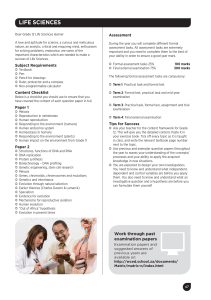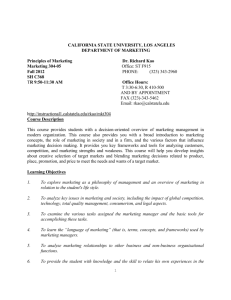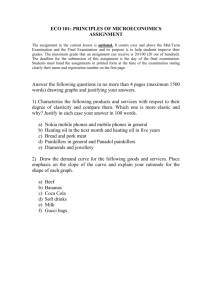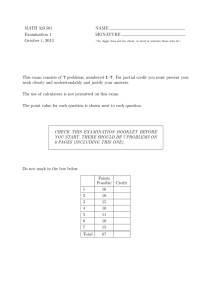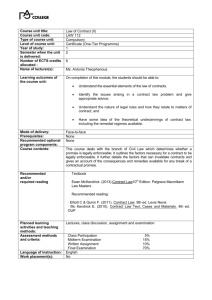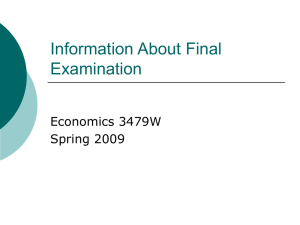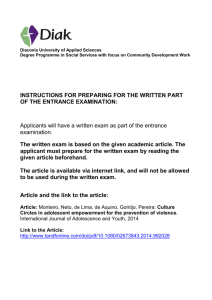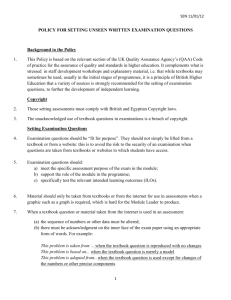MATH 202: MATHEMATICS FOR ELEMENTARY TEACHERS II
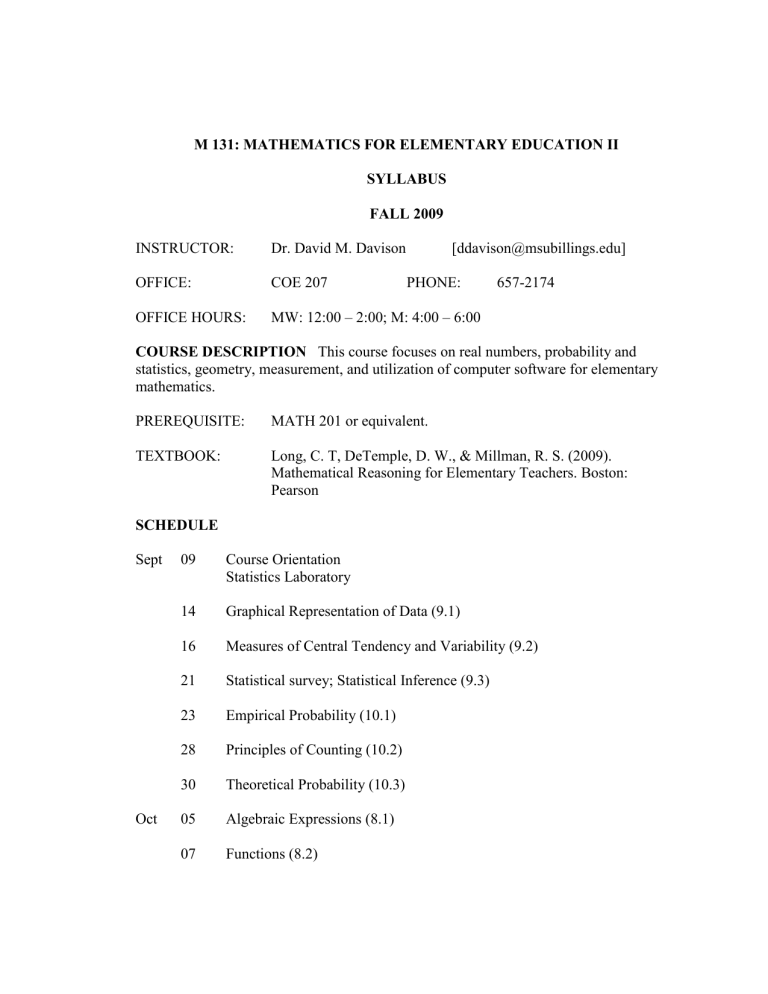
M 131: MATHEMATICS FOR ELEMENTARY EDUCATION II
SYLLABUS
FALL 2009
Dr. David M. Davison [ddavison@msubillings.edu] INSTRUCTOR:
OFFICE: COE 207 PHONE: 657-2174
OFFICE HOURS: MW: 12:00 – 2:00; M: 4:00 – 6:00
COURSE DESCRIPTION This course focuses on real numbers, probability and statistics, geometry, measurement, and utilization of computer software for elementary mathematics.
PREREQUISITE: MATH 201 or equivalent.
TEXTBOOK: Long, C. T, DeTemple, D. W., & Millman, R. S. (2009).
Mathematical Reasoning for Elementary Teachers. Boston:
Pearson
SCHEDULE
Sept 09 Course Orientation
Statistics Laboratory
14 Graphical Representation of Data (9.1)
16 Measures of Central Tendency and Variability (9.2)
21 Statistical survey; Statistical Inference (9.3)
23 Empirical Probability (10.1)
28 Principles of Counting (10.2)
30 Theoretical Probability (10.3)
Oct 05 Algebraic Expressions (8.1)
07 Functions (8.2)
12 Cartesian Graphs (8.3)
14
19
21
Figures in the Plane (11.1)
Curves and Polygons in the Plane (11.2)
First Examination (Chapters 8 – 10)
26 Figures in Space (11.3)
28 Networks (11.4)
Nov 02 The Measurement Process (12.1)
04 Area and Perimeter (12.2)
09
16
Pythagorean Theorem (12.3)
Surface Area and Volume (12.4)
18 Rigid Motions and Similarity Transformations (13.1)
23 Patterns and Symmetries (13.2)
30 Tilings and Escher-like Designs (13.3)
Dec 02 Congruent Triangles (14.1); Constructing Geometric Figures (14.2)
07 Similar Triangles (14.3)
09 Lab Test; Examination Review
16 Second Examination (Chapters 11 – 14))
Section 001: 8:00 – 9:50
Section 002: 10:00 – 11:50
2.
3.
COURSE REQUIREMENTS
1. Group project assignments and laboratory test (100 points)
Seven review assignments (worst score will be dropped) (300 points)
Notebook—compilation of reactions to readings (one per chapter) (50 points)
4.
5.
Midterm Examination (100points)
Final Examination (100 points)
GRADING
A: 95 – 100%
B+: 87 – 89%
C+: 77 – 79%
D+: 67 – 69%
F: Below 60%
A–: 90 – 94%
B: 84 – 86% B–: 80 – 83%
C: 74 – 76% C–: 70 – 73%
D: 64 – 66% D–: 60 – 63%
Notes
1. Class participation is crucial, especially for laboratory activities. Absences will be penalized unless appropriate documentation is provided.
2. University assessment standards for all math classes call for the development of critical thinking, imaginative thinking, normative thinking, and problem solving.
The development of these skills will be facilitated by the use of the textbook and the organization of the course (through labs and cooperative groups).

